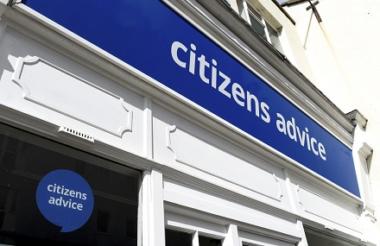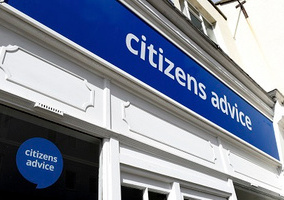Citizens Advice has seen its income grow by £15.9m to £109.8m following substantial new funding from the government to deliver advice services.
The charity’s annual report and accounts for the year ending 31 March 2019 reveals that government grants rose by £14.8m to £75.9m. This figure included £9.8m of new funding from the Department of Work and Pensions (DWP) for the charity’s new Help to Claim service, which launched in April to assist recipients of universal credit.
DWP also increased its funding for the charity’s pension guidance by £3.4m to £9.8m.
Grants from public bodies were up £1.7m to £26.7m, while all other income streams were largely stable.
Expenditure stood at £109.1m, up £14.9m, while the charity held free reserves of £13.6m, which was within the target range.
The charity is planning to diversify its income streams in the coming year by “testing various means of fundraising locally and nationally”.
Earlier this year the charity worked with its network of local charities to develop a new “strategic framework” for 2019-22, which aims to make services easily available and joined up, to make sure people get the level of support they need, and to advocate for changes to government policy.
Gender pay gap still above national average
Citizens Advice’s median pay gap fell from 23.9 per cent to 22.1 per cent, though this remains well above the national average of 17.3 per cent. The mean gender pay gap rose slightly from 17.5 per cent to 17.7 per cent.
The report states: “We’re working hard to close this gap by continuing to attract and develop more women into senior leadership roles, and exploring how we can improve the gender balance in other roles.
“Our employee offer includes a wide range of flexible working options and in 2019 we’ll review these and our overall benefits and employee engagement offer to make sure they are compelling, competitive and family friendly.”
Chief executive Gillian Guy saw her salary grow to £152,000, which was in line with the 2 per cent increase given to staff across the organisation.
Average staff numbers grew by 35 to 838, while redundancy costs fell by £118,000 to £299,000.
Pension deficit rises “significantly”
Citizens Advice’s defined benefit pension scheme was closed to new members and further accrual in 2008, but the report states that the scheme’s deficit has “risen significantly” since then due to decreasing mortality rates and economic factors such as sustained low gilt yields.
The total deficit of the scheme now stands at £55.5m, up from £43.2m in 2017-18, “due to changes to the actuarial assumptions on the liabilities of the scheme”.
Of this amount, the negative pension reserve, which represents Citizens Advice’s share of the agreed payments to the closed pension scheme, reduced by £0.8m to £20.2m. The charity will nevertheless need to make payments of £1.6m each year until December 2033 to cover the costs of the scheme.
|
Related items












